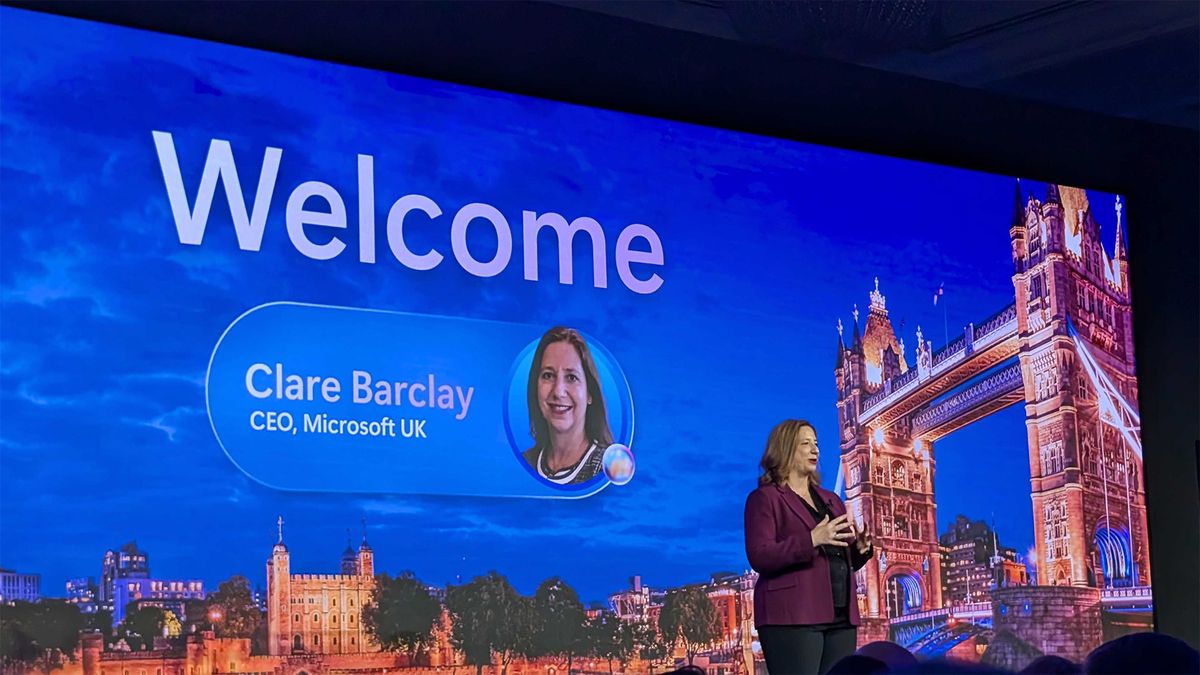Microsoft expands autonomy of Copilot agents ahead of public preview

Microsoft has announced its new agents for Copilot will be put into public preview at its Ignite conference in November, as it aims to automate complex tasks across the enterprise that previous generations of AI assistants were unable to process.
AI agents will work autonomously across any Microsoft business environment and are intended to be useful out of the box – without the need for lengthy and expensive AI model training.
“Agents are very focused on augmenting business processes and workflows, teams and departments,” said Charles Lamanna, CVP, Business & Industry Copilot at Microsoft to assembled media.
“They’re able to work on behalf of a system as opposed to a person, work asynchronously, or even autonomously to complete tasks.”
In a keynote demonstration, Microsoft showed a scenario of an employee at the consultancy firm McKinsey and Company using Copilot to automate incoming customer client requests.
Whenever a client sends an email, the Copilot agent can pull out the vital information from the message such as their name, company, the nature of the proposal, and its timeframe.
It can then cross-reference this against the client’s sector and similar client engagements and use all of this to send an email containing the project details to the most relevant expert within McKinsey.
If an agent runs into an issue executing these steps, it will escalate to a human. All of its steps are shown as a flowchart, with annotations in a side panel explaining each action the agent has taken and why.
All of this is underpinned by natural language instructions setting out the exact parameters for the agent, including specific triggers to activate the agent – in this case, receiving an email though other triggers could include activity across other Microsoft or third-party apps.
Lamanna stated that instructions can be as complex or simple as an organization requires, such as “never send an email to this address”. The agent is also connected to user-selected data across an organization’s cloud estate, including both Microsoft Fabric and third-party sources such as SAP or ServiceNow.
McKinsey has estimated that the agent, which it’s testing in a pilot phase, could reduce the time its partners spend on filing client engagements by 30%.
William Hewish, CIO at Pets at Home told media that his organization had built a Copilot Agent in just ten days to assist its fraud prevention team as part of an early test project.
Going forward, the firm is looking at supporting its contact center staff with calls that come through and to help its vets convert verbal observations made during examination of a pet into notes on the pet’s file.
These are summarized using a large language model (LLM), to remove redundant connecting words and ensure the notes are as legible as possible.
“If we can take administrative tasks away from a vet, that means they get to spend their time treating pets – which is really what their seven years’ training was for, what they dedicated their career to,” said Hewish.
Custom agents can be created through Copilot Studio, allowing businesses to set custom guardrails, behaviors, and the resources agents can use. Agents within Copilot can also be overseen by any organization’s existing lifecycle management tools.
Dedicated agents for Dynamics 365
Microsoft has also announced ten new autonomous agents for Dynamics 365, aimed at providing concrete ROI on enterprise AI investment.
The Sales Qualification Agent within Dynamics 365 Sales can constantly look for leads in a business’ pipeline, to identify which prospects could be the most valuable. At the same time as flagging promising leads, it automatically drafts an email which a sales employee can then send in a single click.
Other new autonomous agents include the Time and Expense Agent, which automatically tracks expenses and sends customers invoices or the Supplier Communications Agent, which analyzes vendor emails to identify supply chain disruptions and automatically updates purchase orders or offers advice on mitigation for fixing serious disruptions.
Lamanna noted that Microsoft has aimed to address both front and back-end issues through its pre-built agents. He noted that issues with procurement, for example, can represent existential threats to Microsoft customers in the manufacturing space.
Some agents learn and improve from human labor. For example, the Customer Intent & Knowledge Management Agent learns from customer service workers to address multi-step issues and analyzes customer interactions across channels to build a map of issues and fixes that it stores in a dedicated library.
The Customer Intent & Knowledge Management Agent can then populate these fixes in its documentation, which once approved by a human can then inform automated responses in the future. It is hoped that this will allow chatbots to offer progressively more helpful answers to customers without the need for developers to manually set out conversation trees.
Microsoft said that 60% of Fortune 500 companies already use Microsoft 365 Copilot and that Copilot in Business Applications has 2.1 million monthly users.
Agents in Copilot Studio will now also be able to use OpenAI o1, which is the underlying model for autonomous agents in the Limited Private Preview. OpenAI o1 is capable of more detailed reasoning tasks, as it can break tasks down into constituent steps to let it reach a goal rather than tackling a problem all at once as other large language models (LLM) tend to do.
Lamanna told assembled press that Microsoft’s base Copilot offering would not be changing in response to the separate agent offering, explaining that the former still has distinct value for personalized AI assistance.
Source link


